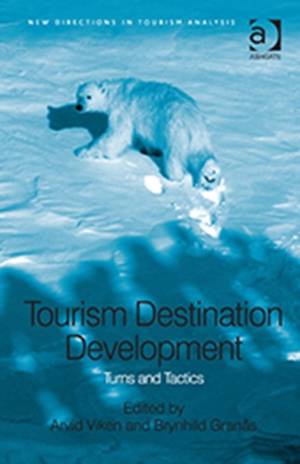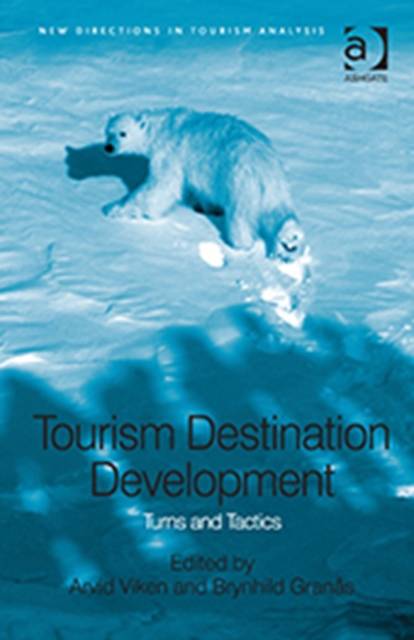
- Afhalen na 1 uur in een winkel met voorraad
- Gratis thuislevering in België vanaf € 30
- Ruim aanbod met 7 miljoen producten
- Afhalen na 1 uur in een winkel met voorraad
- Gratis thuislevering in België vanaf € 30
- Ruim aanbod met 7 miljoen producten
Zoeken
Tourism Destination Development
Turns and Tactics
€ 202,95
+ 405 punten
Omschrijving
Although blurred and heavily contested, the concept of 'tourist destination' still deserves careful attention. Despite its unstable characteristics, 'destination' is a central and meaningful term in play among all parties in the field of tourism, including tourists, tourism operators, and politicians, as well as students and tourism scholars. This anthology draws on different approaches and discourses of tourism destination development, while focusing on how they are shaped and reshaped and how they should be read and rehearsed. The book reveals dominant as well as alternative approaches to the field. The authors demonstrate how tourism destinations are commercial, but socially embedded; how they are both material and territorial, but at the same time socially constructed; how production of touristic brands and images are vital, but contested. Such tensions are unfolded through paradigmatic discussions and a series of case studies from the northern hemisphere. The chapters in the book investigate how destination development is catalysed through theming, how changing environments lead to reorientations, and how destinations are political. Altogether, the book provides experts and students with an up-to-date theoretical and empirical insight into tourist destinations.
Specificaties
Betrokkenen
- Uitgeverij:
Inhoud
- Aantal bladzijden:
- 292
- Taal:
- Engels
- Reeks:
Eigenschappen
- Productcode (EAN):
- 9781472416582
- Verschijningsdatum:
- 28/04/2014
- Uitvoering:
- Hardcover
- Formaat:
- Genaaid
- Afmetingen:
- 156 mm x 233 mm
- Gewicht:
- 707 g

Alleen bij Standaard Boekhandel
+ 405 punten op je klantenkaart van Standaard Boekhandel
Beoordelingen
We publiceren alleen reviews die voldoen aan de voorwaarden voor reviews. Bekijk onze voorwaarden voor reviews.










